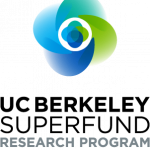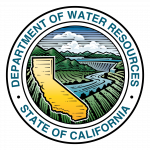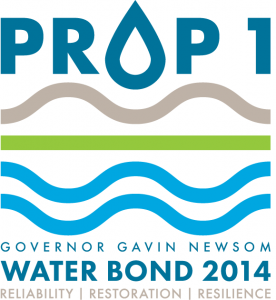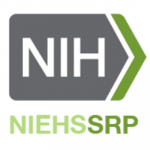About Us
The Community Water Center (CWC) acts as a catalyst for community-driven water solutions through organizing, education, and advocacy. We seek to build and enhance leadership capacity and local community power around water issues, create a regional movement for water justice in California, and enable every community to have access to safe, clean, and affordable drinking water. At CWC, we believe that safe, clean, and affordable water is a human right, not a privilege.
Groundwater is a primary drinking water source for many communities across the state. The Sustainable Groundwater Management Act (SGMA) provides a historic opportunity to protect drinking water supplies and provide other beneficial uses. Now that many Groundwater Sustainability Agencies have finalized their Groundwater Sustainability Plans (GSPs), it is critical to continue building the capacity of disadvantaged and rural community stakeholders to participate in the planning and GSP review process to ensure safe, reliable, and affordable drinking water.
CWC led the development of this tool with research support from UC Berkeley’s Water Equity Science Shop (WESS), Dr. Amanda Fencl and Dr. Rob Gailey, and with feedback from many stakeholders. The core research team developed data layers and through a series of webinars, Advisory Committee members shared feedback throughout the development of the tool. A second iteration of the Drinking Water Tool was released on September 5, 2023. Updates to the tool include refined public and state small water system boundaries, improved domestic well location estimates, updated water quality estimates, and new drinking water threats data layers.
Community Water Center Team
The following current and former CWC staff played a role in helping develop this tool:
Adriana Renteria, (former) Drinking Water Tool Project Manager & (former) Regional Water Manager
Anavel Valdez-Lupercio, Director of Operations
David Okita, Senior Fellow
Debi Ores, (former) Senior Attorney
Heather Lukacs, (former) Director of Community Solutions
John Erickson, Technical Director
Justine Massey, Policy Manager & Attorney
Laurel Firestone, Co-Founder & (former) Executive Director
Natalie Garcia-Grazier, Senior Director of Organizational Development
Ryan Jensen, Senior Community Water Solutions Manager
Susana De Anda, Executive Director & Co-Founder
Tien Tran, Drinking Water Tool Project Manager & Policy Advocate
Research and Webtool Team
 UC Berkeley – Water Equity Science Shop (WESS)
UC Berkeley – Water Equity Science Shop (WESS)
WESS is a community-academic partnership that conducts research and multi-level public health actions to address the health risks associated with drinking water contamination among California residents in rural, agricultural, and socioeconomically disadvantaged communities that are served by small drinking water systems and private domestic wells that fall outside the purview of drinking water regulations and monitoring requirements. The WESS team helped shape and develop this tool, by contributing data on the domestic well community layer, groundwater quality estimation layer, and demographics layer. Learn more about WESS here.
- Clare Pace, Postdoctoral Scholar, University of California, Berkeley
Carolina Balazs, (former) Research Scientist, California Office of Environmental Health Hazard Assessment
Lara Cushing, Professor, University of California, Los Angeles
Rachel Morello-Frosch, Professor, University of California, Berkeley
Jenny Rempel, University of California, Berkeley
Seigi Karasaki, University of California, Berkeley
Ari Libenson, University of California, Berkeley
Ananya Subramanian, University of California, Berkeley
Elana Fisher, Santa Clara University
Jessica Goddard, University of California, Berkeley
Kallista Bley, University of Wisconsin, Madison
Dana Goin, University of California, San Francisco
Komal Bangia, Research Scientist, California Office of Environmental Health Hazard Assessment
Community Water Center Consultants
The following consultants were critical in helping shape and develop this tool. Dr. Amanda Fencl coordinated and guided the technical aspects of the tool as well as contributing to the content of the tool and overall framework. Dr. Rob Gailey developed the drought supply well impact analysis for small water systems and domestic wells in the Central Valley.
- Amanda Fencl, Ph.D., (former) Technical Project Manager
Rob Gailey, Ph.D., P.G., C.HG., Consulting Hydrogeologist
GreenInfo Network
The following current and former GreenInfo Network staff played a role in developing the webtool and data processing.
Stephen Smith, Project Management and Data Development
Dan Rademacher, Project Management and Oversight
Tim Sinnott, Design
Gregor Allensworth, Development
Amanda Damewood, User Research
María Lamadrid, User Research
Maianna Voge, Data quality review
Yessenia Chaiu Zhang, Data Development
Funders

 California Department of Water Resources (DWR)
California Department of Water Resources (DWR)
Funding for this project has been provided in full or in part from the Water Quality, Supply, and Infrastructure Improvement Act of 2014 and through an agreement with the State Department of Water Resources.
 National Institute of Environmental Health Sciences (NIEHS)
National Institute of Environmental Health Sciences (NIEHS)
Research conducted by the Community Engagement Core – Water Equity Science Shop of the UC Berkeley Superfund Research Program was supported by the National Institute Of Environmental Health Sciences of the National Institutes of Health under Award Number P42ES004705. The content is solely the responsibility of the authors and does not necessarily represent the official views of the National Institutes of Health.
Advisory Committee
We are grateful to everyone who participated in our advisory committee webinars and contributed to this tool, including the following individuals:
Note: Affiliations reflect time of participation
Allensworth Community Services District: Sherry Hunter
Alta Irrigation District and Kings River East Groundwater Sustainability Agency: Chad Wegley
Association for California Water Agencies: David Bolland; Melissa Sparks-Kranz
California Department of Pesticides: Vaneet Aggarwal
California Department of Public Health: Heather Amato; Kelly Torres; Paul English
California Department of Water Resources: Alena Misaghi; Alena Moshir; Amanda Peisch-Derby; Ben Brezing; David Fairman; Diana Brooks; Erica Haight; Erin Crandall; Heather Shannon; Jordi Vásquez; Julie Ekstrom; Lauren Hinch; M.T. Lorenzo-Lee; Melissa Sparks-Kranz; Michael McGinnis; Nicholas Anchor; Paul Gosselin; Paul Wells; Siran Erysian; Steven Springhorn; Wyatt Arnold
California Natural Resources Agency: Moisés Moreno-Rivera
Central Valley Regional Water Quality Control Board: Denise Kadara; Walter Plachta
CivicWell: Angela Islas
Clean Water Action: Jennifer Clary; Micael Glackin; Ngodoo Atume
East Kaweah Groundwater Sustainability Agency: Michael Hagman
Environmental Defense Fund: Adriana Fernandez; Ana Lucia Garcia; Christina Babbitt; Noa Bruhis; Sarah Fakhreddine
Fresno Irrigation District, North Kings Groundwater Sustainability Agency: Kassy Chauhan
GreenInfo Network: Amanda Damewood; Dan Rademacher; Maianna Voge; Stephen Smith; Tim Sinnott; Yessenia Chaiu Zhang
Governor’s Office of Planning and Research: Debbie Franco
Kings River Conservation District: Debra Dunn
Leadership Counsel for Justice and Accountability: Amanda Monaco; Pedro Hernandez
Luhdorff & Scalmanini, Consulting Engineers: Vicki Kretsinger Grabert
Madera County: Emily Garcia
Mid-Kaweah Groundwater Sustainability Agency: Paul Hendrix
Monterey Waterkeeper: Chelsea Tu
The Nature Conservancy: Sandi Matsumoto
Office of Environmental Health Hazard Assessment: Carolina Balazs; John Faust; Komal Bangia; Laura August
Openthink: Robin Debold; Thomas Newman
Pajaro Valley Water Agency: Marcus Mendiola
Plainview Mutual Water Company and East Kaweah Groundwater Sustainability Agency: Cruz Rivera
Santa Clara University Environmental Justice and the Common Good Initiative: Iris Stewart-Fry
Salinas Valley Basin Groundwater Sustainability Agency: Emily Gardner
San Joaquin Valley Clean Water Advocates: Reyna Rodriguez
State Water Resources Control Board: Aaron Button; Amelia Nishimura; Andrew Renshaw; Angela Schroeter; Anna Garcia; Betsy Lichti; Bill Brewster; Carol Cantwell; Chad Fischer; Dorian Bellan; Emily Houlihan; Gita Kapahi; Greg Gearheart; Janine Bird; Jeanne Chilcott; Janice Zinky; Jessica Bean; John Borkovich; Karen Nishimoto; Liz Haven; Marina Perez; Mary Yang; Max Gomberg; Moises Moreno Rivera; Morgan Johnson; Natalie Stork; Nick Martorano; Rafael Maestu; Rachel Wittenberg; Sarah Treadwell; Scott Seyfried; Stephanie Torres; Virginia Fujioka; Wendy Killou
Self-Help Enterprises: Jasmine Rivera; Liesbet Olaerts; Luis Sanchez; Paul Boyer; Sonia Sanchez; Stephanie Mercado; Sue Ruiz
Stanford’s Water in the West: Tara Moran
Stantec: Hayat Rasul
Sustainable Conservation: Charles Delgado; Daniel Mountjoy; Joe Choperena
Tri-County Water Authority: Kayode Kadara
Tulare Irrigation District: Diana Zegarra
Tulare Kern Funding Area IRWM Disadvantaged Community Involvement Project: Mark Thompson
UC Agriculture and Natural Resources: Curt Pierce
UC Berkeley: Ananya Subramanian; Glen Low; Jenni Shearston; Lenny Soule-Siler; Nell Green Nylen
UC Davis: Clare Gupta; Helen Dahlke; Jonathan London; Jose Flores; Nisha Marwaha; Sarah Brown Blake; Sheryl-Ann Simpson; Thomas Harter
UC Los Angeles: Ariana Hernandez; Erik Porse; Kristin Dobbin
UC Merced: Chantelise Pells
UC Riverside: Lukkee Thorpe; Miranda Vega
UC Santa Barbara: Claudia Mendoza Chavez
UC Santa Cruz: Nathan Van Schmidt; Ruth Langridge
Union of Concerned Scientists: Amanda Fencl; Coreen Weintraub; José Pablo Ortiz Partida; Juliet Christian-Smith
US Geological Survey GAMA: Bryant Jurgens; Kim Taylor; Miranda Fram; Sylvia Stork
Water Foundation: Alesandra Najera; Mike Myatt; Elizabeth Soderstrom
Yettem-Seville Community Services District: Linda Guttierrez